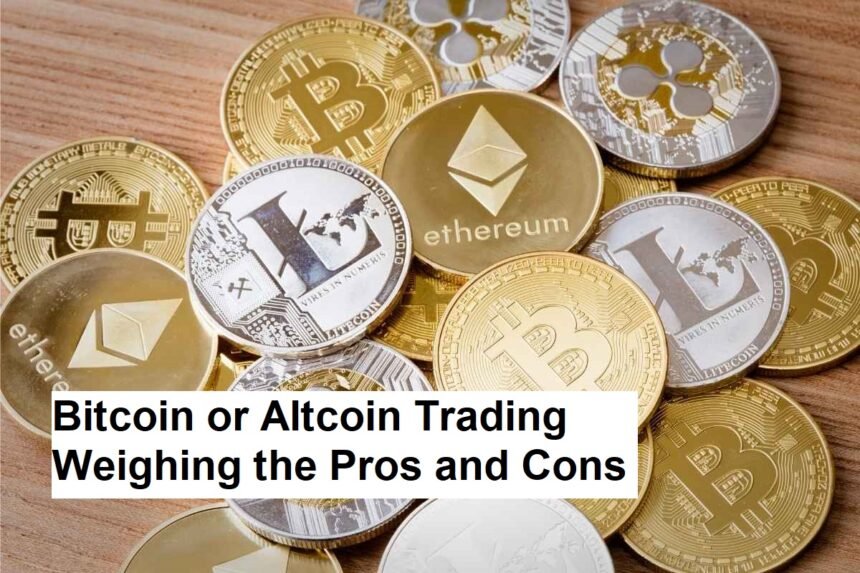Introduction
When stepping into the thrilling universe of cryptocurrency trading, one big question often arises for beginners and experienced traders alike: Should I trade Bitcoin or Altcoins? Both play leading roles in the crypto ecosystem but come with unique traits, risks, and opportunities. Here, I’m going to break down key considerations that can help you make an informed choice to suit your style, risk appetite, and goals.
The Nature of Bitcoin and Altcoins
First, let’s clarify the basics. Bitcoin was the world’s first cryptocurrency, established in 2009, and remains the most widely recognized, held, and capitalized digital asset to date. It’s the gold standard of crypto, often viewed as a store of value and a safe haven during market turbulence.
Altcoins refer to all other cryptocurrencies except Bitcoin. This includes Ethereum, Solana, Cardano, Ripple, and thousands more. While some altcoins aim to improve on Bitcoin’s technology, others have entirely different uses, from facilitating smart contracts to powering decentralized apps.
Liquidity and Market Depth
One practical reason to lean towards Bitcoin trading is liquidity. Bitcoin boasts the highest trading volume, so it’s easier to buy and sell at any time with less price slippage. Altcoins, especially those outside the top 20 by market cap, can suffer from thin trading books. For large positions or frequent trading, Bitcoin might feel safer.
On the other hand, if you’re comfortable with less liquidity and enjoy the hunt for higher-risk, higher-reward scenarios, altcoins might appeal more. Just beware: in low-liquidity environments, price moves can be sharp and unpredictable.
Volatility: Risk Versus Reward
While Bitcoin can be volatile compared to traditional assets, it’s usually more stable than most altcoins. This relative stability can be a double-edged sword. If you’re seeking quick gains and explosive moves, some altcoins can surge by double or triple digits in a matter of days. Of course, these wild swings can also result in massive losses.
If your nerves can handle the ride and you thrive on speculative moves, altcoins offer plenty of action. However, for those seeking more calculated moves, Bitcoin’s price action might be more palatable.
Fundamental Differences and Use Cases
Not all cryptocurrencies are created equal. Bitcoin is primarily seen as a digital store of value, but many altcoins power whole ecosystems. For instance, Ethereum is foundational for DeFi and NFTs. Some altcoins are designed for privacy, others for ultra-fast payments, and some incentivize network participation.
When weighing your options, think about your interest in blockchain technology and your curiosity for niche projects. If you really believe in a particular ecosystem or utility, trading the corresponding altcoin may align with your convictions.
Technical and Fundamental Analysis
Charting and analysis play a crucial role in trading both Bitcoin and altcoins. Bitcoin tends to see somewhat more predictable, technical-driven movements, influenced by macro factors like global economics and regulations.
Altcoins, especially new or less-established ones, sometimes react sharply to news, rumors, exchange listings, or technological upgrades. The lack of historical data can make analysis trickier, and fundamentals can shift overnight.
Regulation and Security
Bitcoin benefits from broader regulatory acceptance and more robust security across exchanges and wallets. Some altcoins have faced regulatory scrutiny, delistings, or hacking incidents. If security and compliance are top concerns for you, Bitcoin currently holds the advantage.
Community and Development
Consider the strength of a coin’s community and the pace of its development. Bitcoin has a vast, passionate community and actively maintained open-source development. Reputable altcoins also have strong communities, but beware: many small-cap altcoins lack solid backing, which could mean abandonment or even scams.
Diversification: Why Not Both?
Here’s a little secret from my own trading journey: you don’t have to choose just one. Many successful traders diversify, allocating a core portfolio to Bitcoin for stability and using a smaller portion for altcoin speculation. This approach allows you to capture upside while mitigating some risks.
My Takeaway
Choosing between Bitcoin and altcoins isn’t a black-and-white decision. It’s about matching your temperament, strategy, and interests with the ever-changing crypto landscape. Start with clear goals, stay updated with market trends, always do your own research, and only trade what you can afford to lose. Whatever you pick, let it fit your unique style, and embrace the adventure that is crypto trading!












